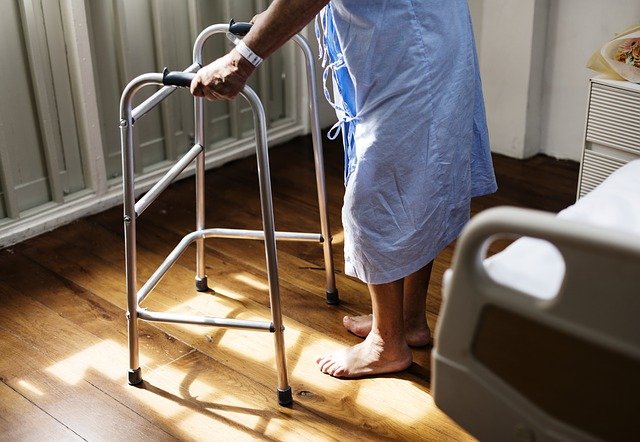
A new study from Johns Hopkins has shown that brain alterations related to Alzheimer’s could lead to poor balance in older people.
This could increase the risk of hip-fracturing falls. Therefore, a hip fracture may be the first sign of undiagnosed disease.
It is estimated that more than 5.5 million people in the U.S. are estimated to have Alzheimer’s disease. Most of the people are over 65 years old.
Previously, scientists have found that about a quarter of older adults hospitalized for hip fracture surgery are likely to die within the following year. It is a very serious condition.
A previous study showed that about 34% of hip fracture patients develop delirium during their hospital stay.
This is a condition in which patients have delusions and incoherent thoughts and speech.
These symptoms are also very common in patients with Alzheimer’s disease.
In the present study, the researchers aimed to test hip fracture patients for Alzheimer’s disease biomarkers.
They examined 200 older people who were hospitalized to repair hip fractures from November 2011 to May 2016.
These people had no clinical diagnosis or signs of dementia. Many of them are active and living independently without overt signs of Alzheimer’s disease.
The team only included hip fracture patients who had received spinal (local) anesthesia before surgery. Therefore, they could collect spinal fluid samples at the time of anesthetic injection.
The researchers found biomarkers of Alzheimer’s disease in most of the patients’ spinal fluid samples.
The results suggest that the brain alterations that lead to poor balance in older people may cause a higher risk of both hip fracture and Alzheimer’s disease.
The team warns that their finding does not suggest that every older person who has a hip fracture has Alzheimer’s and not all patients hospitalized for a hip fracture need to undergo spinal fluid tests.
However, all patients with hip repair surgery after a fall should be monitored closely for signs of mental or cognitive problems.
Some of the people may have underlying Alzheimer’s disease, which might make them more vulnerable.
Currently, doctors could diagnose Alzheimer’s disease much earlier. Many people live for decades after diagnosis.
Early detection and health care planning may improve patients’ quality of life and help them live independently.
One study author is Esther Oh, M.D., Ph.D., associate professor of medicine at the Johns Hopkins University School of Medicine.
The research is published in PLOS ONE.
Copyright © 2019 Knowridge Science Report. All rights reserved.
Further reading: PLOS ONE.



